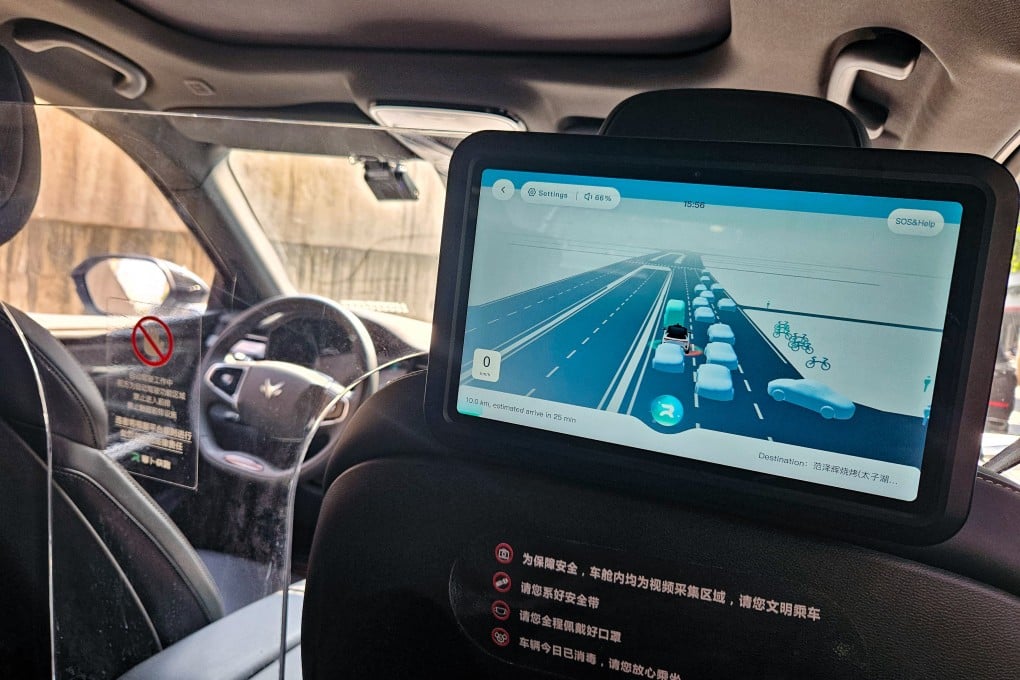Advertisement
My Take | Robotaxis: China faces tough balancing act to embrace tech, while losing traditional jobs
- There is no point to resist the progress of smart driverless vehicles, much like when automobiles replaced horse carriages on the road
Reading Time:3 minutes
Why you can trust SCMP
1

The growing popularity of driverless taxi services in Wuhan, capital of central Hubei province, and other mainland cities has raised a question for China’s policymakers: how fast should the country embrace technologies that threaten to destroy many jobs in traditional industries?
For Chinese consumers, robotaxis represent a safe – if not safer – alternative mode of transport to conventional taxis with a driver behind the wheel. Robotaxi charges are comparatively lower because of reduced operating costs, and in theory, these autonomous vehicles can manage 24/7 operations.
On the streets of Wuhan, the South China Morning Post found the nearly 500 driverless taxis currently in operation have become the preferred method of transport for young consumers in the city of 13.7 million. These vehicles now operate on 35 per cent of the provincial capital’s road network.
For those supporting the deployment of robotaxis across mainland China, short-term pains are seen as the price to be paid for adopting technology that would benefit the greater population. There is no point to resist the progress of smart driverless vehicles, much like when automobiles replaced horse carriages on the road.

The transition to robotaxi services in China comes at a time when the country is in a race to lead the world in the development and adoption of autonomous vehicle and artificial intelligence technologies. It would be foolish for the country to deliberately slow down innovation.
Many once-significant sectors have already disappeared in China, thanks to hi-tech innovations. Pagers were once a thriving business that created hundreds of thousands of jobs, from manufacturing and retail to call centres, during the mid-1980s to the 1990s. With the steady proliferation of feature phones and then smartphones, few probably felt sorry for the disappearance of pagers.
Advertisement
